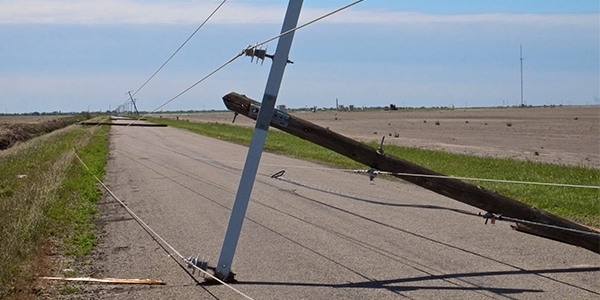By Holden Mann
NERC’s Performance Analysis Subcommittee (PAS) this week reviewed the first draft of the organization’s annual State of Reliability (SOR) Report and identified a number of issues to resolve before releasing the document this summer.
Lack of Weather Data Questioned
Most of the topics discussed by subcommittee members revolved around relatively uncomplicated issues such as consistency of language or adding additional context to the report’s narrative sections. However, the collection of data on severe weather events led to a longer discussion, as participants questioned the exclusion of such events from the report’s record of transmission events with loss of load. Several members said leaving out such information seemed counterproductive to the purpose of the report.
“If you want to define resilience as the ability of the system to withstand these types of events, we need to include weather,” said David Penney of Texas Reliability Entity. “So, maybe for next year’s SOR, do you think it’s possible to … separate out the weather events so we can put that in the discussion of system resilience?”
Ed Ruck, a senior reliability engineer at NERC, warned the subcommittee that while it might be possible to incorporate information on weather conditions into future reports, there are major practical challenges that preclude getting it done this year. Even gathering the data for next year could represent a prohibitive time investment, as the Event Analysis Subcommittee (EAS) — which provided the data used in the report — is not required to include weather-related data in its event reporting.
“This data is not in a database anywhere,” Ruck said. “We have to go through each event one by one … to find out this information. This is not going to be an easy undertaking.”
Several members asked why the EAS was not required to store this information in the first place. Nobody present had direct knowledge of the reason, though Penney suggested that it was “because [entities] can’t control the weather,” and NERC preferred that data collection focus on events that operators could have helped prevent.
Recovery Data Recommended for Inclusion
In addition to collecting data on the contribution of severe weather to transmission events, members also suggested future reports include data on recovery that are not presented in the current version of the report. In response, Ruck warned that this too would be a more difficult and time-consuming effort than members realized.
“That is also something that [the EAS] does not do; we don’t look at how long it takes something to recover,” Ruck said. “We look at what happens that leads up to that incident, but we really don’t go into how long it takes to recover from an incident. I don’t even think that data would be there.”
The next PAS meeting is scheduled for July 28-29, though whether the subcommittee will meet in person or via conference call again has not been decided. The team has also agreed to conduct an online meeting each week for one to two hours, starting next week, so that the subgroups working on smaller issues can keep the full subcommittee up to date on their progress.





